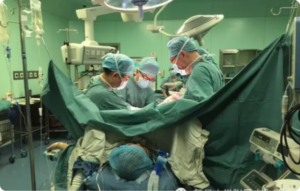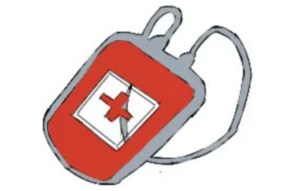
In the March 2021 issue of “Are you suitable for kidney transplantation from an ABO-incompatible relative?” and the December issue of “Preoperative knowledge of kidney transplantation from an ABO-incompatible relative”, the editor introduced the indications and preoperative preparations for the recipient. Today, we will continue with our third lecture: Selection of living donors for kidney transplantation from ABO-incompatible relatives.
First, let’s look at the indications for living donor surgery:
- Mental state has full autonomous behavioral capacity and can be responsible for one’s own decisions and behaviors; mental health, completely voluntary, without any additional economic conditions, is a noble behavior.
- Age, 18-65 years old.
- No kidney disease, such as nephritis, kidney disease, infection, stones, tumors, deformities; the large blood vessels of the kidney to be removed are normal, without deformities, sclerosis and obvious stenosis; good renal function, endogenous creatinine clearance>80 mL/min.
- No heart, liver, or lung disease; no hypertension, diabetes, or systemic lupus erythematosus; no malignant tumors; no infectious diseases, such as AIDS, syphilis, or hepatitis; no mental illness; and no coagulation disorders [1][2].
Of course, we also need to understand the absolute contraindications for living donor surgery:
- Widely metastatic or uncured tumors;
- Severe mental illness and difficult-to-solve psychological and social problems;
- Irreversible organ failure;
- Severe neurological damage such as irreversible brain damage;
- Drug abusers;
- Acute active hepatitis;
- Endogenous creatinine clearance <70 mL/min;
- Body mass index (BMI) >35 kg/m2;
- Age <18 years [2][3].
In addition, there are some relative contraindications that need to be noted:
- Tumors that have been cured;
- Chronic liver disease, such as chronic hepatitis B or chronic hepatitis C;
- HIV infection;
- History of drug abuse;
- Severe urinary tract malformations, neurogenic bladder, etc.;
- Severe malnutrition or cachexia;
- Evidence of poor compliance;
- Lack of family and social support;
- Active infection;
- Abdominal aorta and inferior vena cava disease;
- Endogenous creatinine clearance 70-80mL/min;
- BMI>30 kg/m2;
- Suffering from other diseases, such as diabetes, hypertension, hyperthyroidism, and urinary tract stones [2].
Finally, it is worth mentioning that in some cases, hepatitis B virus (HBV) and hepatitis C virus (HCV) positive donors may also be able to donate kidneys to HBV and HCV positive recipients, respectively.

微信扫一扫
关注该公众号



